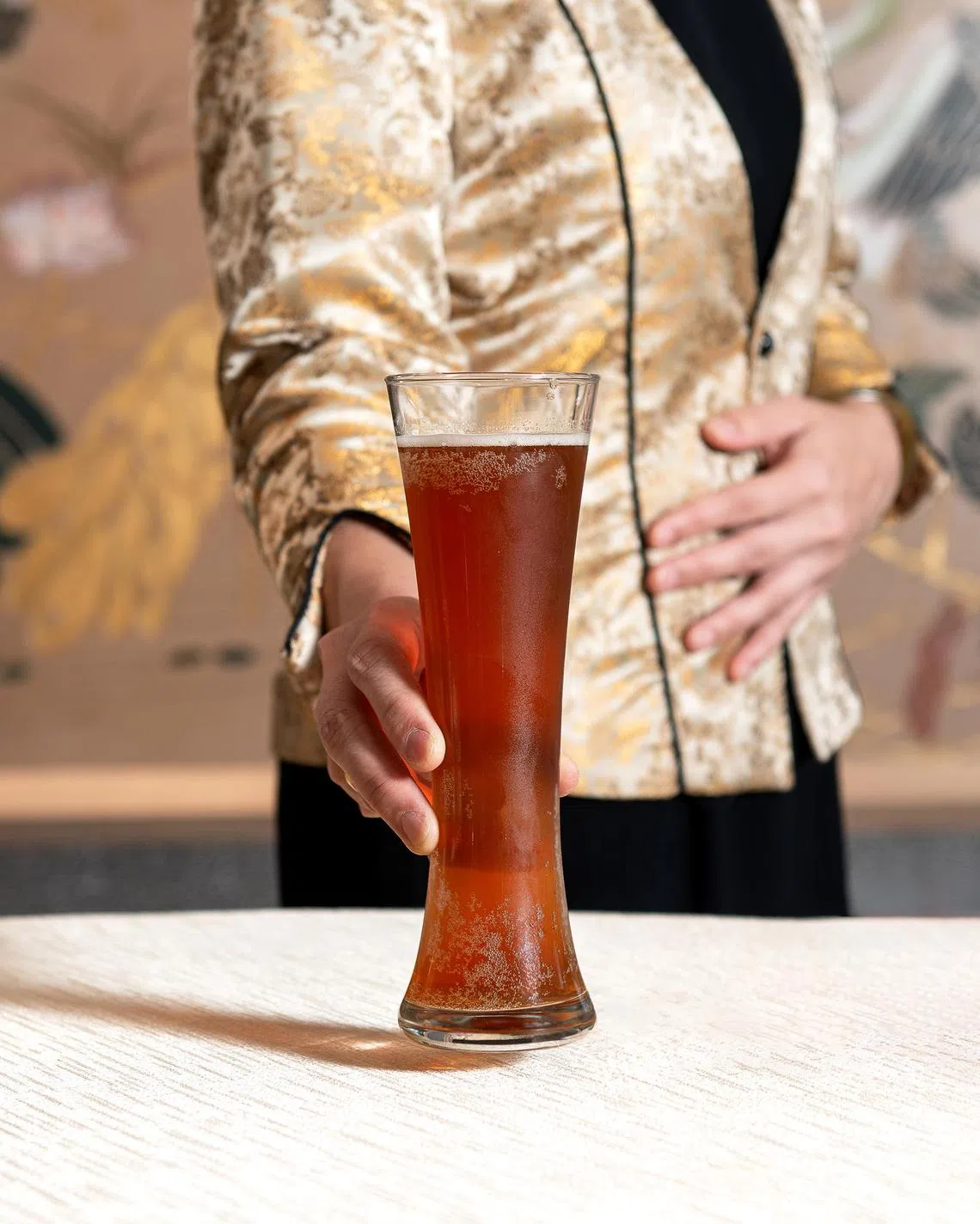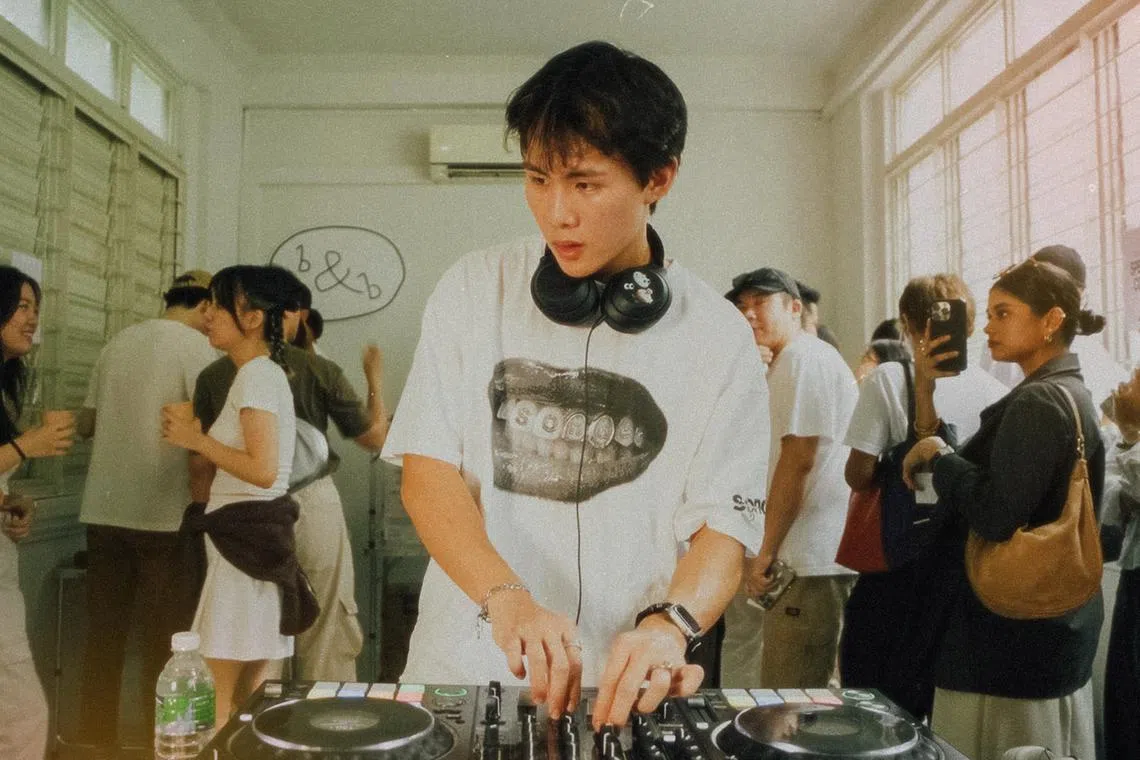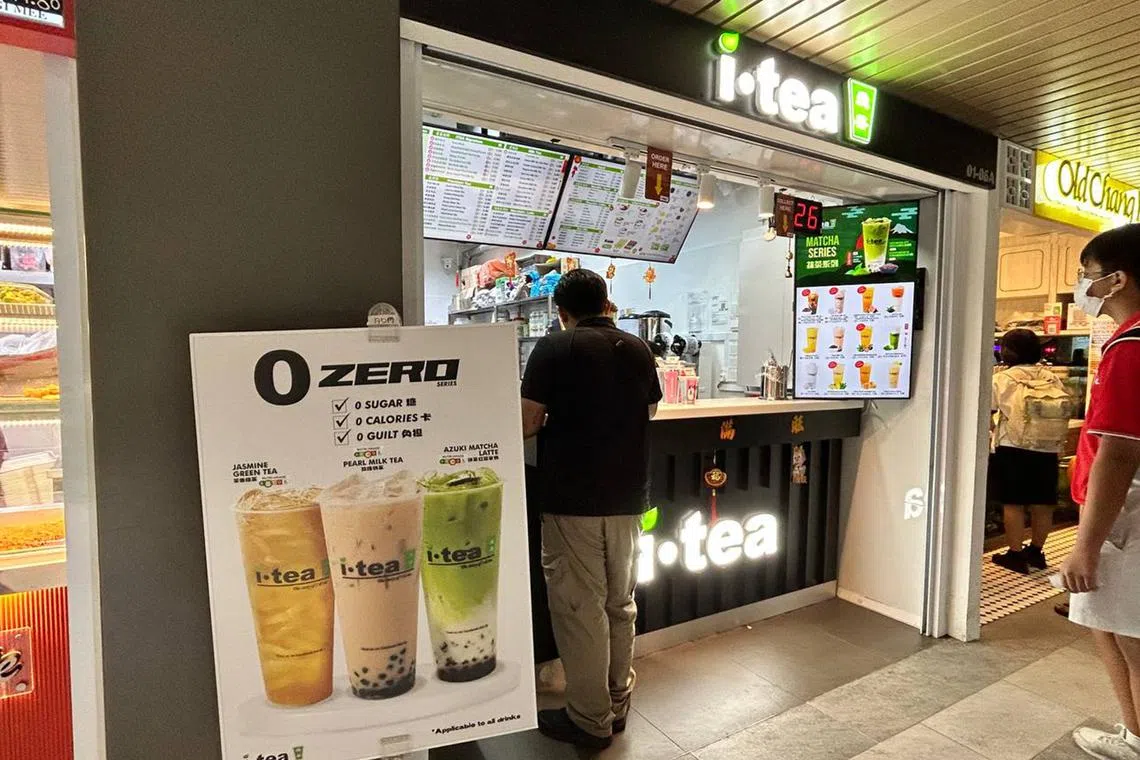A to Z of 2024: ‘Low and No’ drink trend bubbles up
Sign up now: Get ST's newsletters delivered to your inbox

With rising demand for non-alcoholic drinks, new options like cold-pressed juice from Mustly have hit the market.
PHOTO: MUSTLY
Follow topic:
SINGAPORE – In 2024, dry January turned into a year-long trend. Diners swopped their champagne flutes for skinny glasses of sparkling tea, equally effervescent and tinged a similar shade of gold. Cans of health-conscious juices and teas started jostling for shelf space alongside established offerings like beer and wine.
As Singapore stepped up its fight against the twin threats of sugar and salt – in August, it was announced that Nutri-Grade labels would extend to salt, sauces, seasonings, instant noodles and cooking oil, in addition to beverages
According to Health Minister Ong Ye Kung, Singaporeans are consuming less sugar. He said in an Aug 22 speech at the World Organisation of Family Doctors Asia Pacific Regional Conference that many producers have reformulated beverages to “suit the newly evolved taste”, a development he attributed to the labelling of drinks in line with their sugar levels.
This shift was echoed in a 2024 survey conducted by consumer intelligence firm NielsenIQ, in which respondents from Singapore indicated that they would be most willing to pay for options with low or no sugar, salt, alcohol, carbs or caffeine.
In response to these preferences, restaurants have rolled out a more extensive menu of healthy, non-alcoholic options.
Bar chain Harry’s now serves sugar-free, non-alcoholic cocktails, as well as wine alternatives from Australian brand NON. Likewise, modern Chinese restaurant Peach Blossoms has introduced a low-sugar, cold-brew sparkling red tea.

Cold brew sparkling red tea from Peach Blossoms.
PHOTO: PEACH BLOSSOMS
Fancy a pub crawl that does not leave you red-faced and blackout drunk? Join alcohol-free drink tour SingaPour, launched earlier in 2024 by local tour operator VegThisCity. It takes visitors to three bars in three hours, serving up one full-sized zero-proof drink at each location, with some bar snacks thrown in.
“More people are looking for cool, unique experiences that allow them to socialise and have fun, but also keep them feeling good and ‘sober shiok’ at the end of the day,” says VegThisCity director Eiktha Khemlani.
“We’re excited to showcase iconic spaces and innovative drinks on the SingaPour experience that will appeal not only to the sober-curious or health-conscious, but also to those looking to appreciate their drinking experience in a new way.”
Alternatively, hit up whichever cafe, restaurant or department store Beans & Beats is spinning at for a taste of “coffee clubbing”. In this roving programme, organisers pair DJs with speciality coffee baristas in an attempt to catalyse a “new social culture” among youth in Singapore.
By swopping out alcohol for coffee and top 50 pop hits for experimental tunes, they hope to rectify several problems with the local clubbing scene, such as the lack of musical diversity, as well as its emphasis on drinking and finding quick love – which renders most clubs unsuitable for building healthy relationships.
So far, the response has been overwhelming. Each event is attended by 100 to 150 people, singing and swaying to the music, even in the middle of the day.

Beans & Beats aims to bring filter coffee and new music to the masses at diverse venues.
PHOTO: BEANS & BEATS
With the pendulum swinging towards healthy lifestyles, many brands have tried to get in on the action.
In July, Taiwanese bubble tea brand AtTea, which has outlets in Pasir Ris, Somerset, Jurong East and Simei, introduced a no-added-sugar incentive. Customers who choose not to add sugar to their drinks receive a 10 cent discount as a way to encourage them to make healthier choices.

Misleading ads put up by bubble tea chain iTEA had confused customers.
ST PHOTO: LEE LI YING
Bubble tea chain iTEA also ran an advertisement that appeared to promote zero-sugar, zero-calorie pearl milk tea, though it later apologised for the misleading text. The brand later clarified that the advertisement was to promote the chain’s “zero-calorie zero-fat sugar substitute”, not the drink itself.
The advertisements, which had been put up at 12 of the brand’s 47 outlets from end-2023 to February 2024, were pulled following an ST report
Despite the gravitation towards healthier drinks, a dangerous habit is brewing among young adults, reported ST
These combinations leave them “wide awake drunk”, though a dietitian ST spoke to said that they also heighten the risk of caffeine overdose and potentially mask intoxication.
According to local health portal HealthHub, the recommended cap on caffeine consumption is around 400mg a day – that is, four cups of coffee or five cups of tea.
Anything more could lead to muscle tremors, insomnia, irregular heartbeat, increased blood pressure, headaches and acid reflux.


